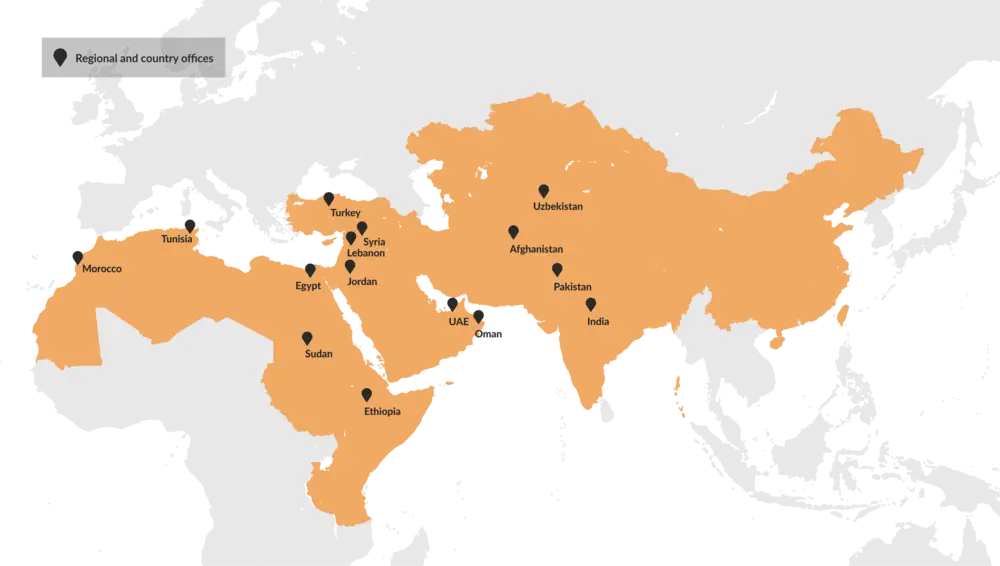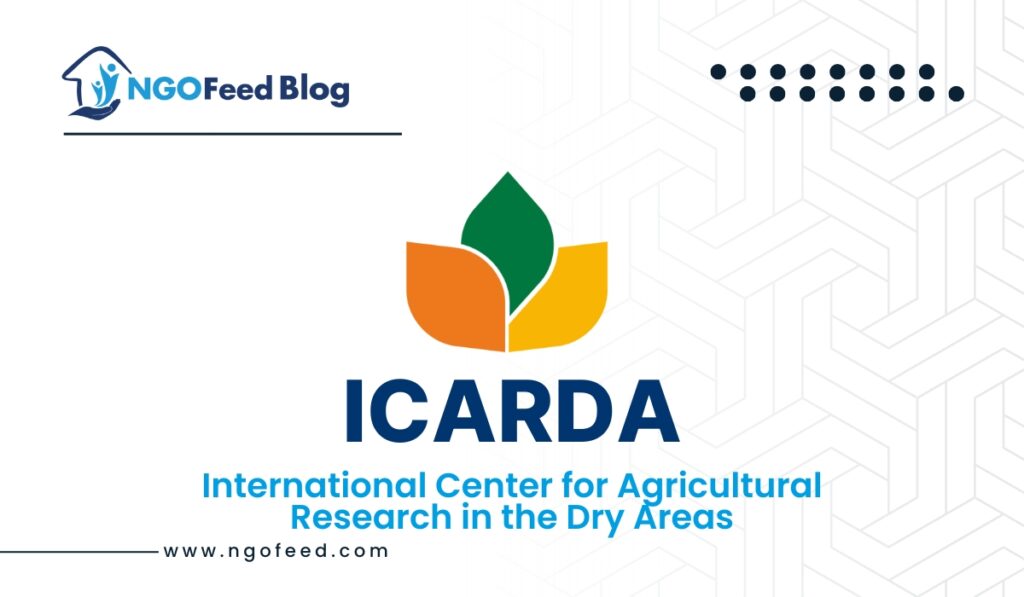The ICARDA Full Form is the International Center for Agricultural Research in the Dry Areas, a CGIAR member and recipient of funding from the CGIAR Fund. It is a nonprofit agricultural research organisation that aims to enhance the lives of resource-poor people in the world’s dry areas. ICARDA was founded in 1977, but its roots date back to 1973 research that highlighted the problems with food security faced by nations in the dry regions of the Near East and North Africa. Although it was planned to be established in Lebanon’s Beqaa Valley, the outbreak of the civil war in 1975 prevented that.
By collaborating with this new organisation, Hafez al-Assad, the president of Syria at the time, intended to safeguard his own nation’s agriculture. He then presented the ICARDA with an alluring offer of free land to the south of Aleppo, which they later accepted two years later. Today, ICARDA researches various topics, including creating novel crop varieties, water harvesting, conservation agriculture, system diversification, integrated crop/rangeland/livestock production, and rural women’s empowerment.
Hafez al-Assad, the president of Syria at the time, wanted to protect his country’s agriculture sector by working with this new organisation. Then, two years later, he made the ICARDA an enticing offer of free land to the south of Aleppo, which they eventually accepted. ICARDA now researches various subjects, including developing innovative crop varieties, water harvesting, conservation agriculture, system diversification, integrated crop/rangeland/livestock production, and empowering rural women.
| Index 1. ICARDA Overview 2. Features of ICARDA 3. Mission 4. Where do ICARDA work? 5. ICARDA Global Goals 6. Frequently Asked Questions (FAQs) |
ICARDA Overview
This section briefly overviews ICARDA (International Center for Agricultural Research in the Dry Areas). Let’s have a look.
| ICARDA | International Center for Agricultural Research in the Dry Areas |
| Headquarters | Lebanon’s Beqaa Valley |
| Formation | 1977 |
| Method | Social science research |
| Website | www.icarda.org |
| Official languages | English |
Features of ICARDA
- The Centers collaborate with scientists in the mission area of each centre and perform practical research in all aspects of agriculture relevant to development.
- Limited rainfall and water resources are the key production bottlenecks in North Africa, the Middle East, and Central Asia, where ICARDA primarily concentrates on agriculture.
- They discuss global challenges before highlighting ICARDA’s research accomplishments in the biophysical and social sciences, emphasising plans.
- Promote sustainable food production and improve livelihoods and human nutrition in the countries of the developing world.
- A breeding programme for cool-season food and forage legumes, including grass pea, is run by ICARDA.
- The ICARDA breeding programme has made tremendous strides in choosing high-yielding, low-neurotoxin lines adaptable to local conditions.
Mission
In response to global concerns like climate change, ICARDA aims to alleviate poverty and improve food, water, nutritional security, and environmental health. They achieve this through cutting-edge research, strategic alliances, tying development to research, and building capacities that consider gender equality and the role of youth in transforming arid areas. Governments, academic institutions, civil society organisations, national agricultural research organisations, other CGIAR research Centers, and the corporate sector are all partners in ICARDA’s work. In Africa, Asia, and the Middle East, ICARDA has regional and country offices under the temporary leadership of Beirut, Lebanon.
Where do ICARDA work?

Problems in Dry Areas
Nearly 2.5 billion people live in non-tropical dry places, which are spread out across 100 emerging countries and face many problems despite being important for agriculture. Many problems affect these areas, including unpredictable rain, changing weather, land damage, and drought. Frequent floods and harsh temperatures make people even more vulnerable, and big population growth and widespread poverty make the problem even worse. Agrarian economies in fragile and post-conflict states make these problems even harder to solve.
ICARDA Global Goals
ICARDA is an organization that works to tackle the issues faced by non-tropical dry areas around the world. The challenges include increasing temperatures, severe water scarcity, depletion of natural resources, and an uncertain future when it comes to food security and nutrition, especially in unstable social conditions. Our work aligns with the United Nations Sustainable Development Goals (SDGs).
| 1 | No Poverty |
| 2 | Zero Hunger |
| 3 | Good Health and Well-Being |
| 5 | Gender Equality |
| 6 | Clean Water and Sanitation |
| 13 | Climate Action |
| 15 | Life on Land |
| 17 | Partnerships for the Goals |
Strategic Plan of ICARDA
ICARDA’s Strategic Plan (2017-2026) aims to enhance food, water, and nutritional security in dry areas amidst global challenges like climate change. Aligned with CGIAR Strategy and UN Sustainable Development Goals, it targets poverty reduction and social stability. Emphasizing innovative science, partnerships, capacity development, and organizational efficacy, ICARDA focuses on challenges like rising temperatures, water scarcity, and food insecurity. Building on consultation and cooperation with partners, it prioritizes impactful research to benefit rural communities, ensuring evidence-based solutions and ethical standards. A dynamic, evolving partnership, ICARDA remains adaptable to changing environments, proactively addressing rural community needs and development challenges.
Conclusion
The International Center for Agricultural Research in the Dry Areas (ICARDA) works to solve the many problems that the more than 2.5 billion people who live in non-tropical dry areas around the world face. With the goals of reducing poverty, protecting food security, and supporting environmental sustainability, ICARDA does cutting edge research, builds capacities, and forms smart partnerships. In line with the Sustainable Development Goals of the United Nations, ICARDA is still dedicated to making these fragile areas more resilient and improving people’s ability to make a living. ICARDA works to make the future more sustainable and successful for dryland communities around the world through its active and joint projects.
Frequently Asked Questions (FAQs)
What is the Full form of ICARDA?
The full form of ICARDA is the International Center for Agricultural Research in the Dry Areas.
When was ICARDA established?
It was established in 1977.
Where do they work?
ICARDA works in Africa, Asia, and the Middle East.
What is the goal of ICARDA?
ICARDA’s goal is to alleviate poverty, improve food, water, and nutritional security, as well as environmental health

